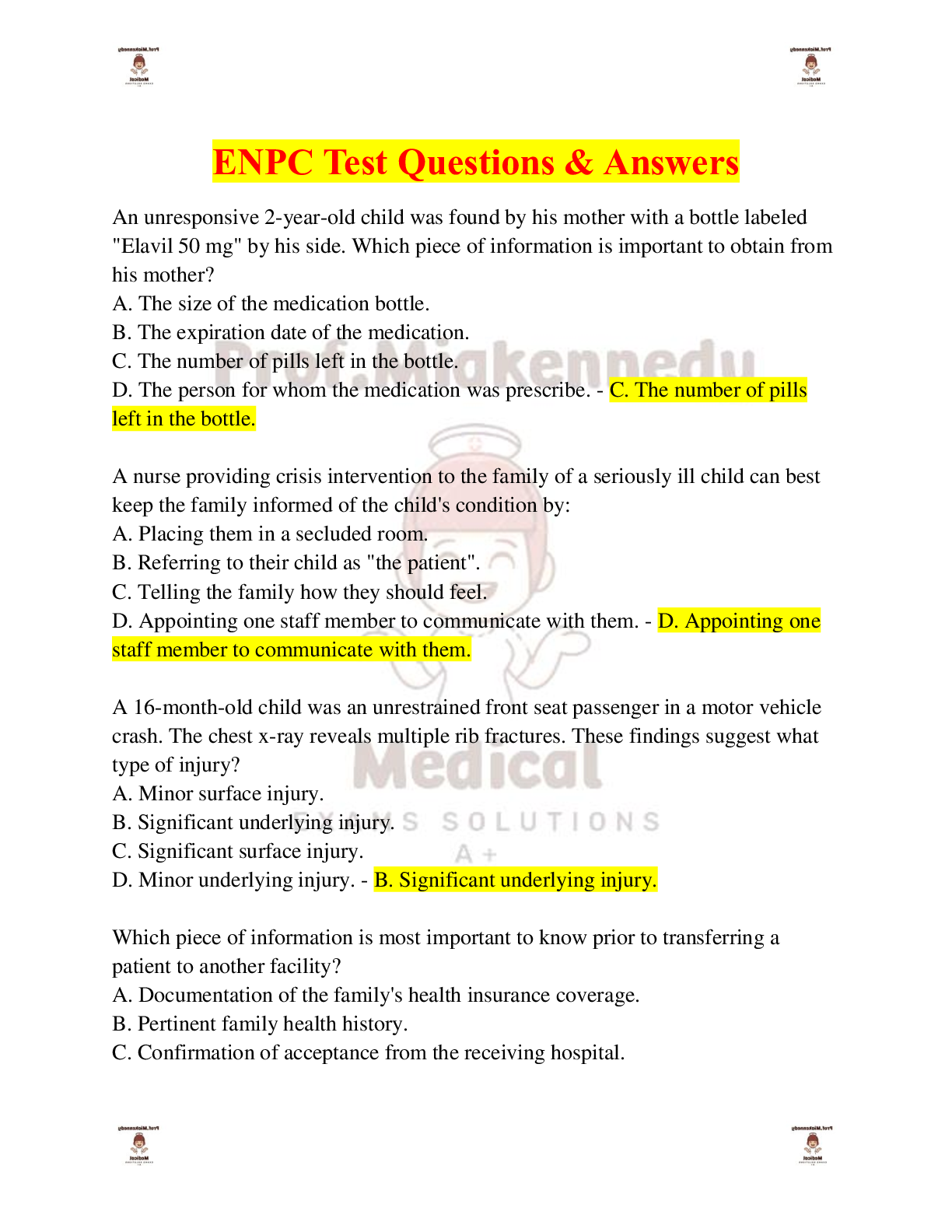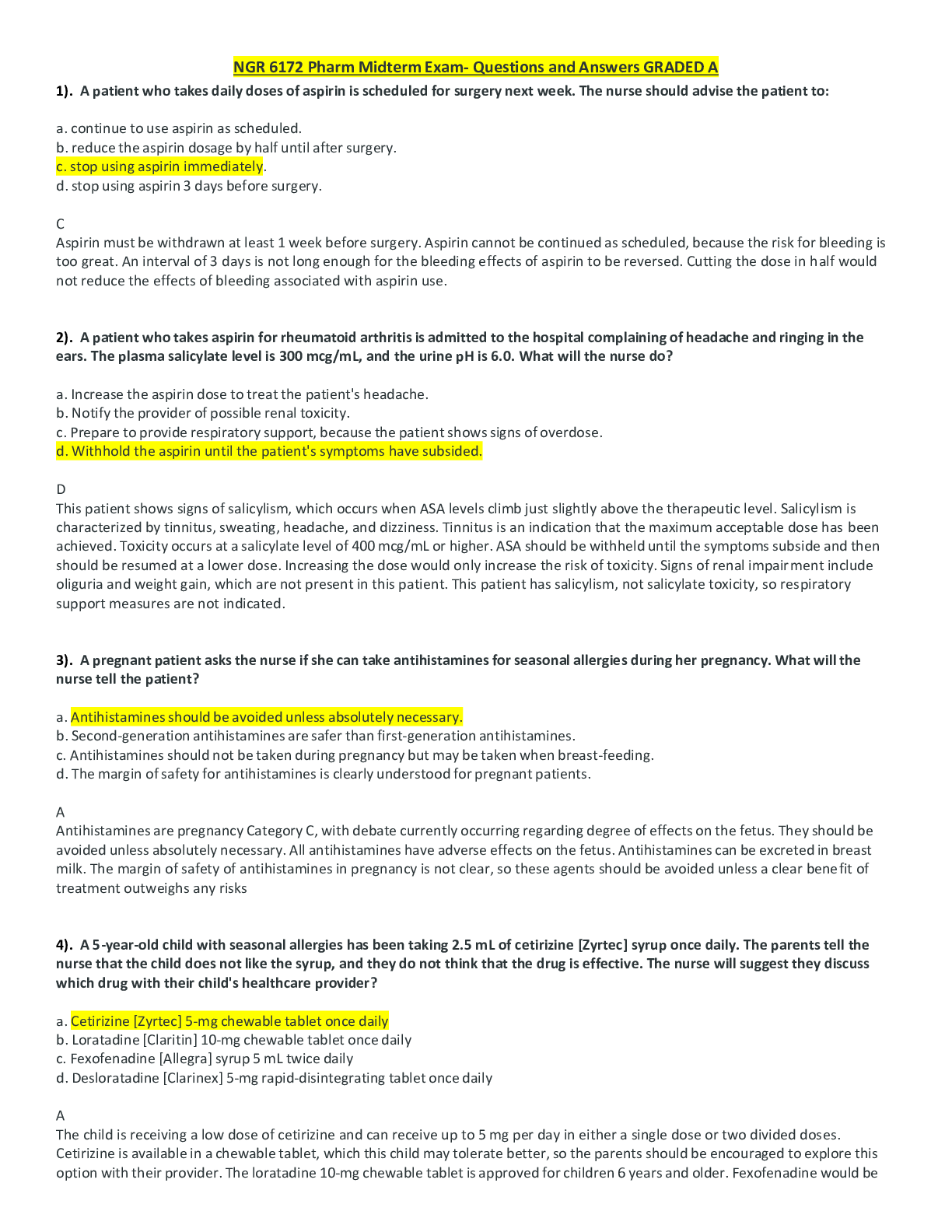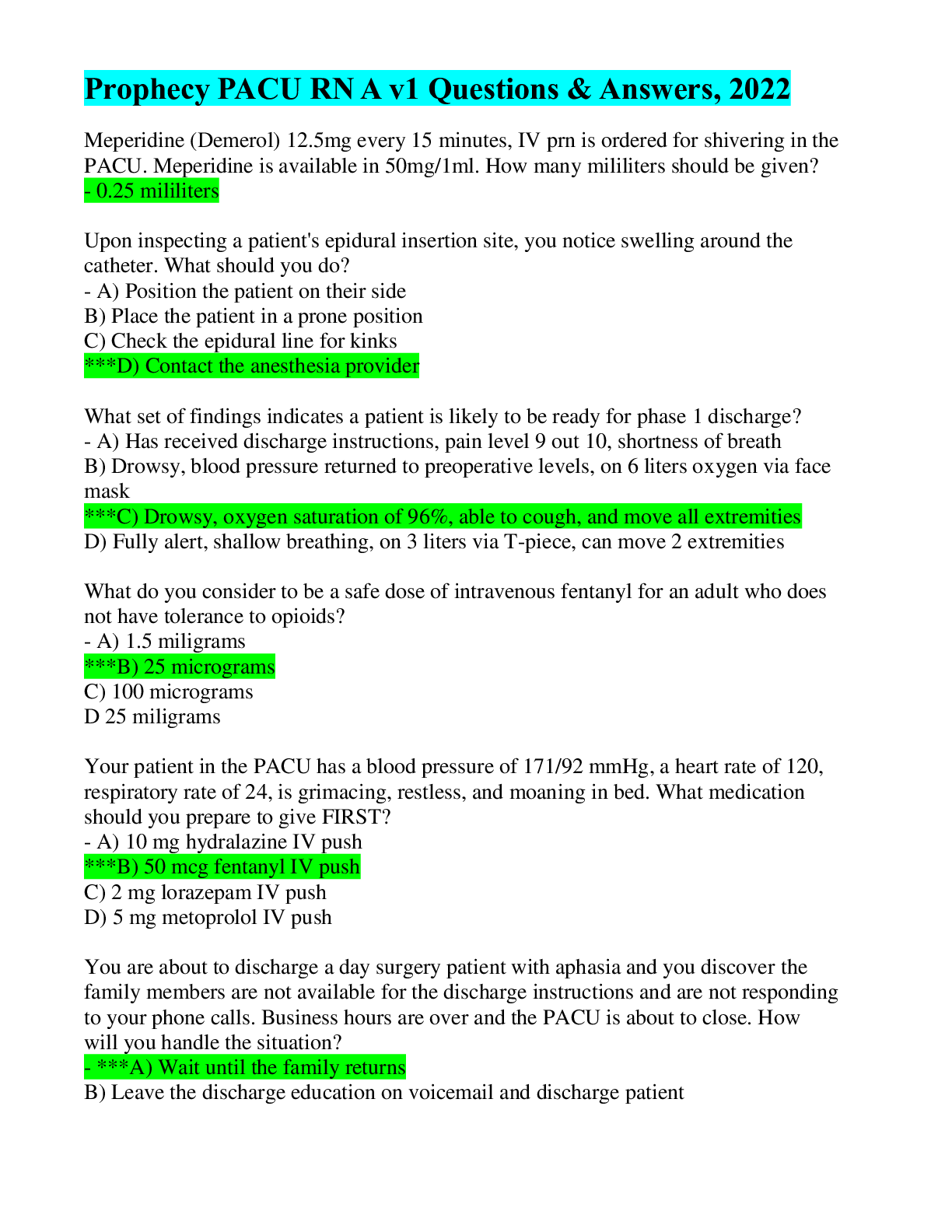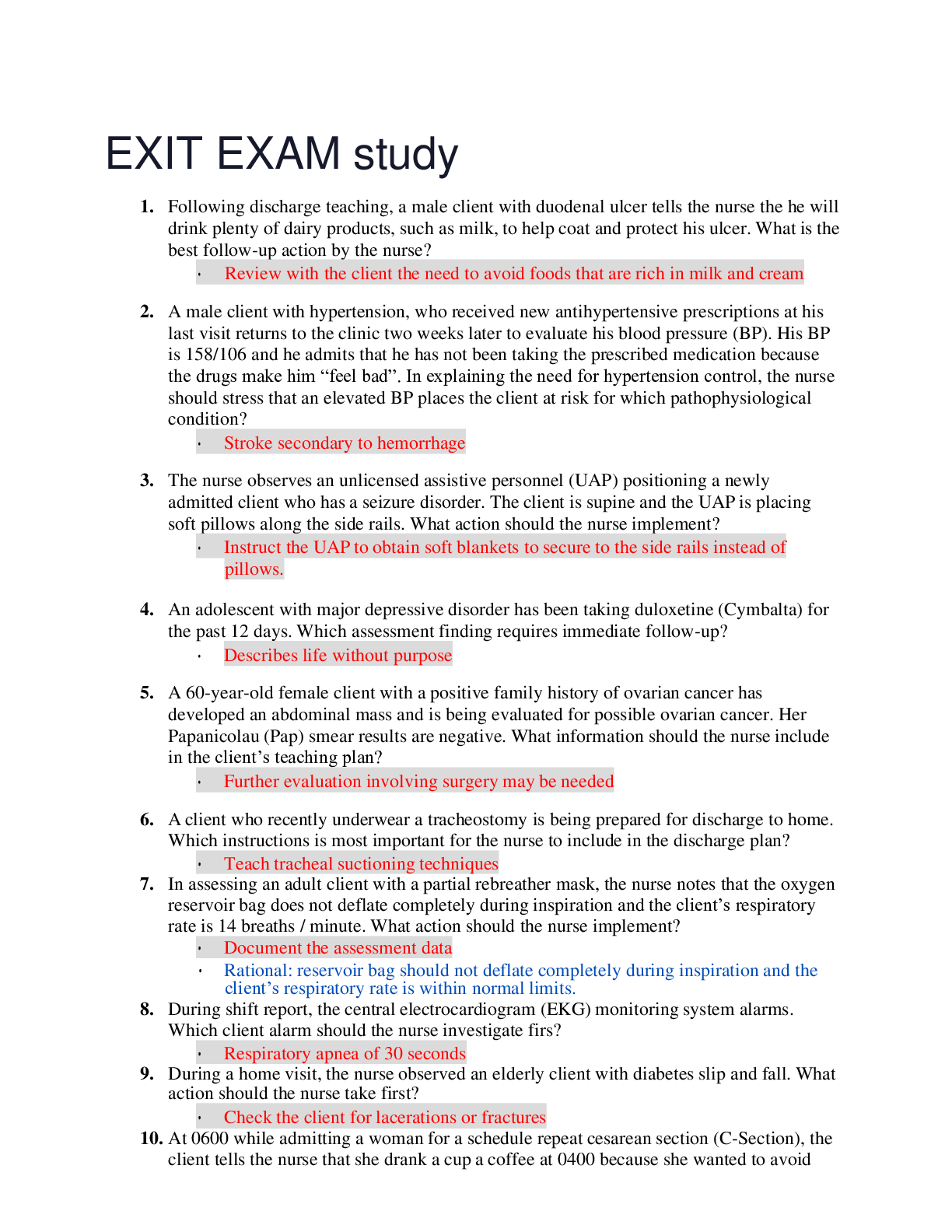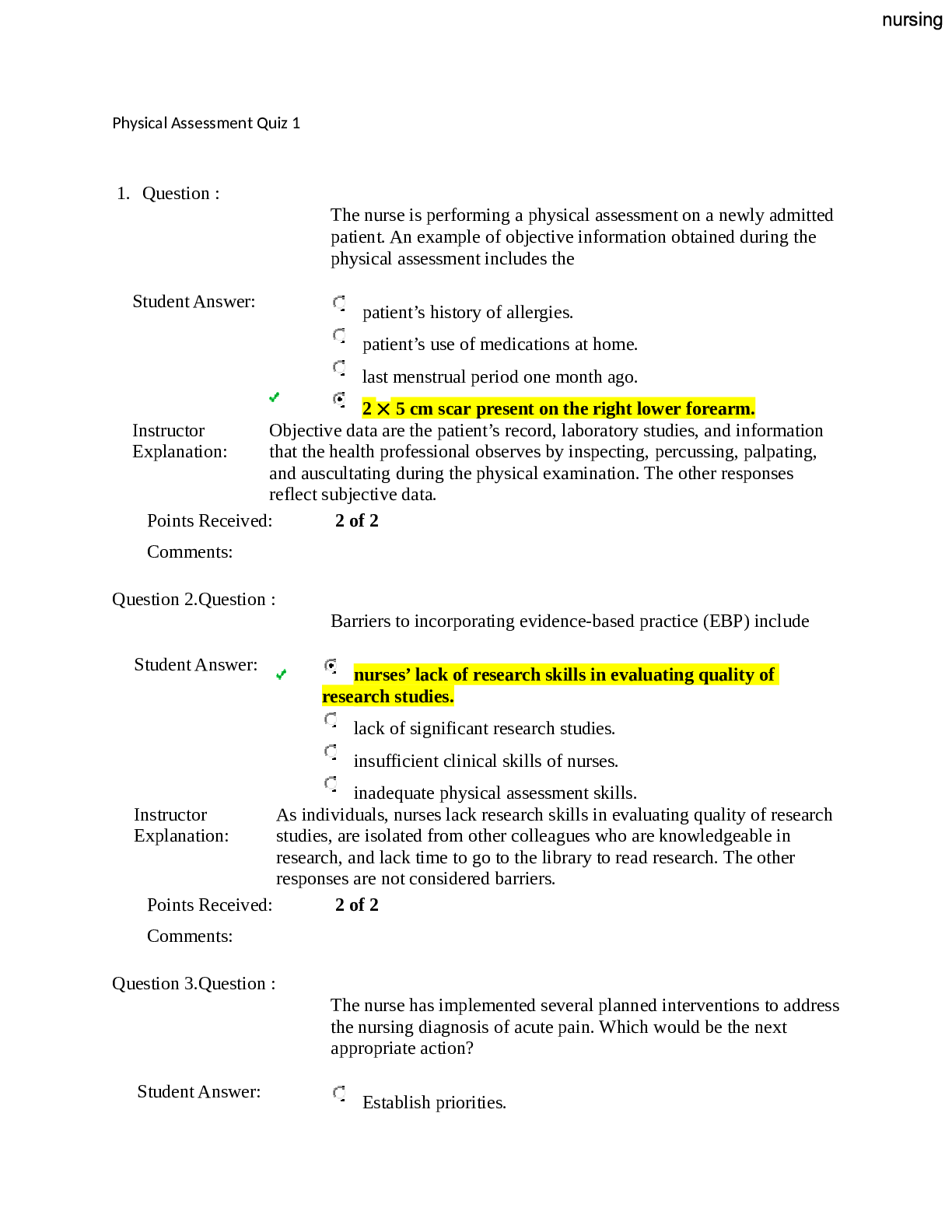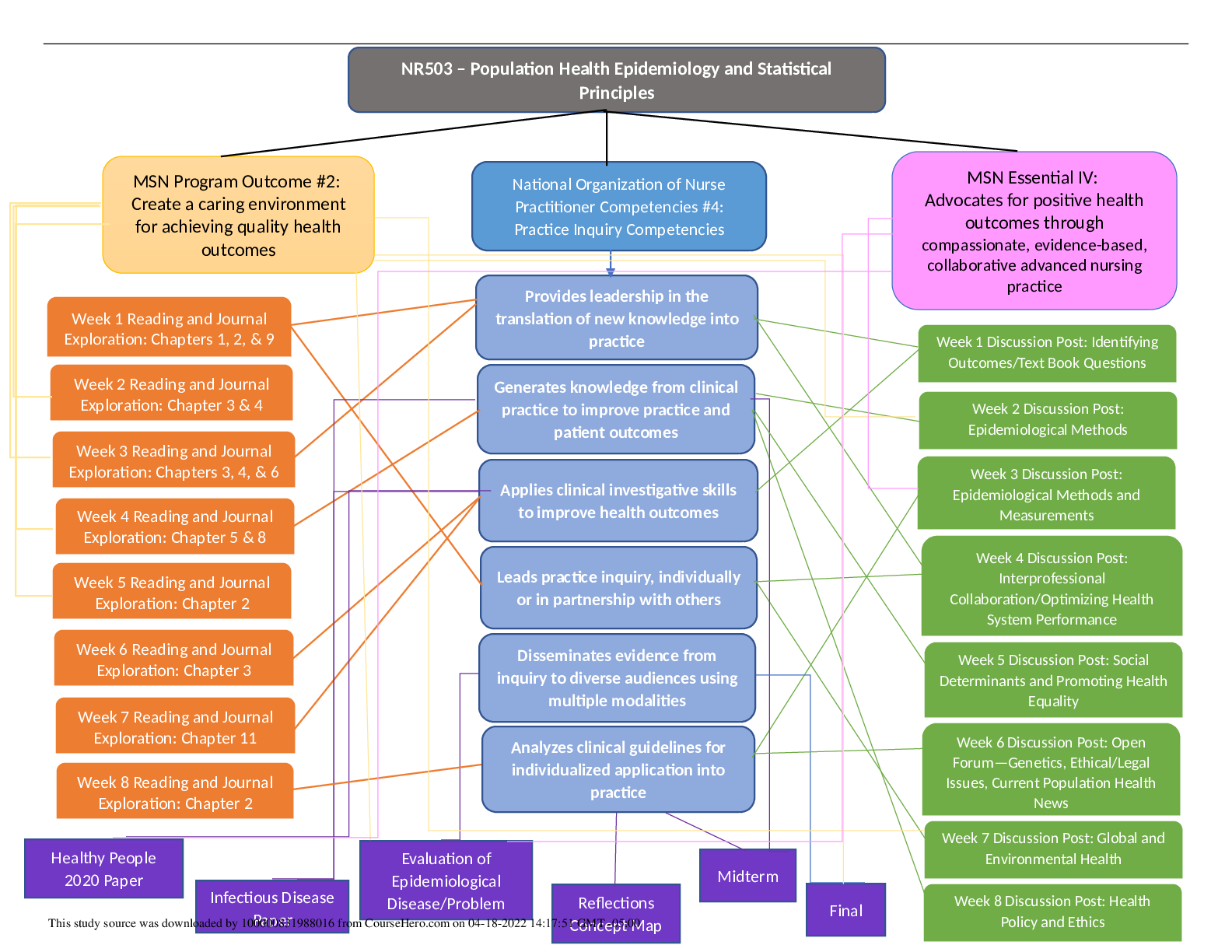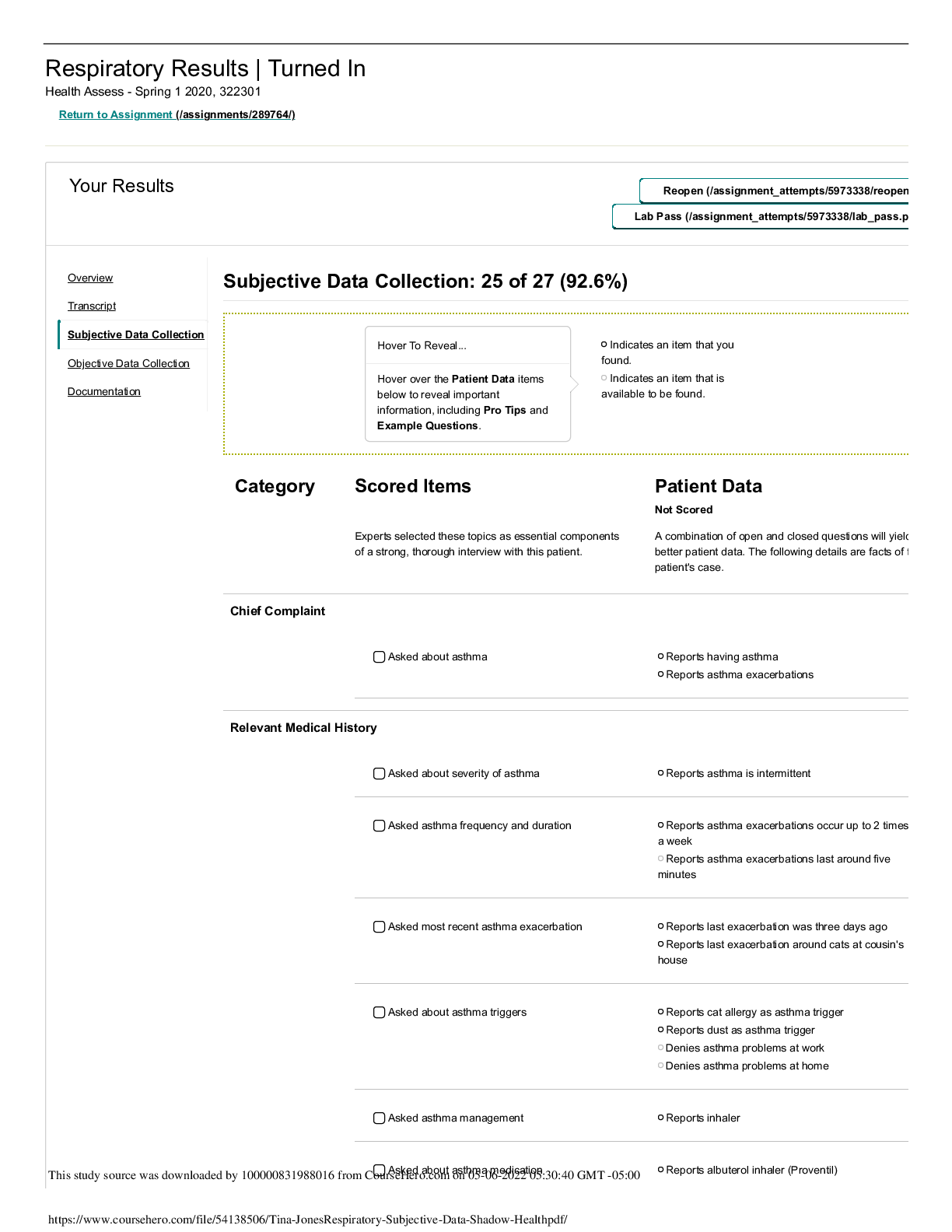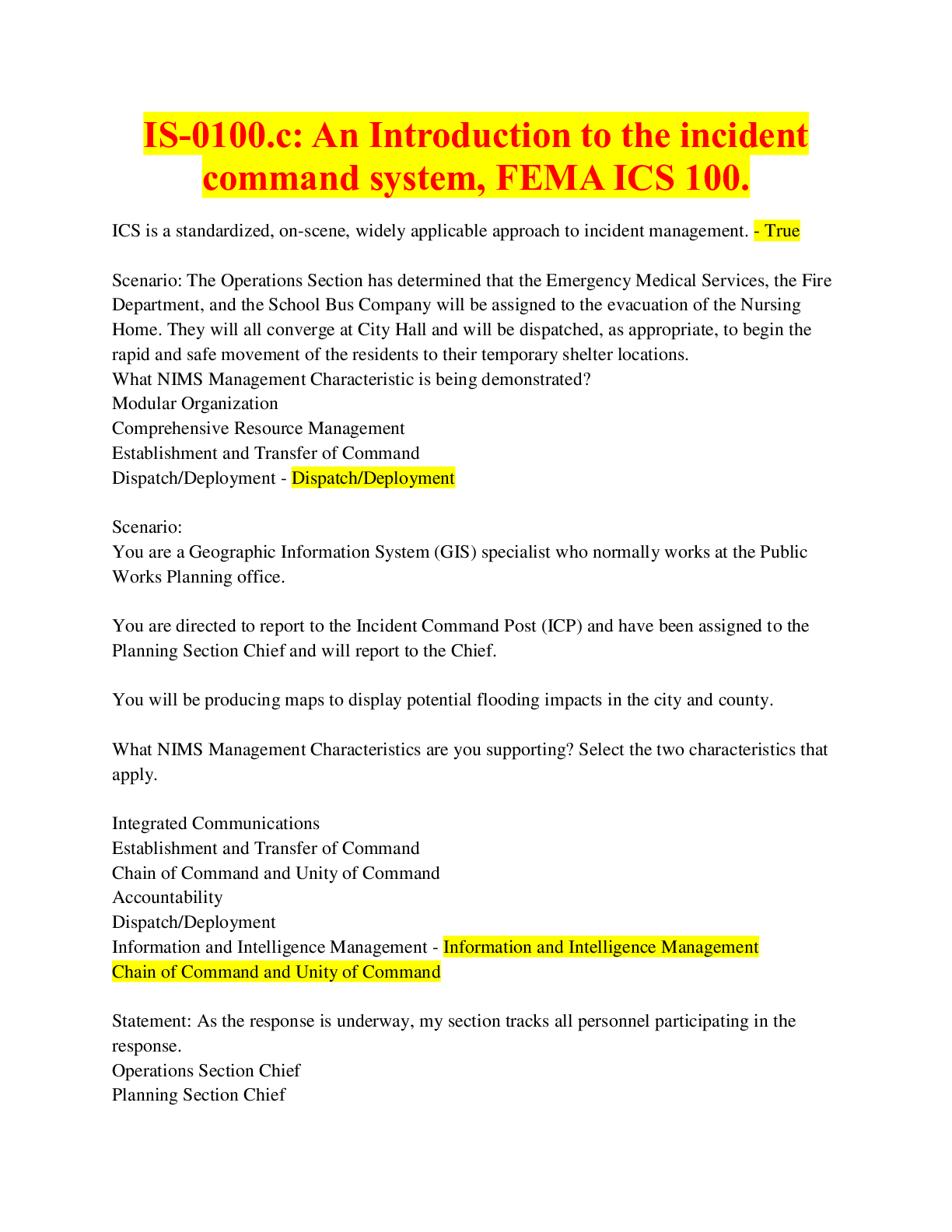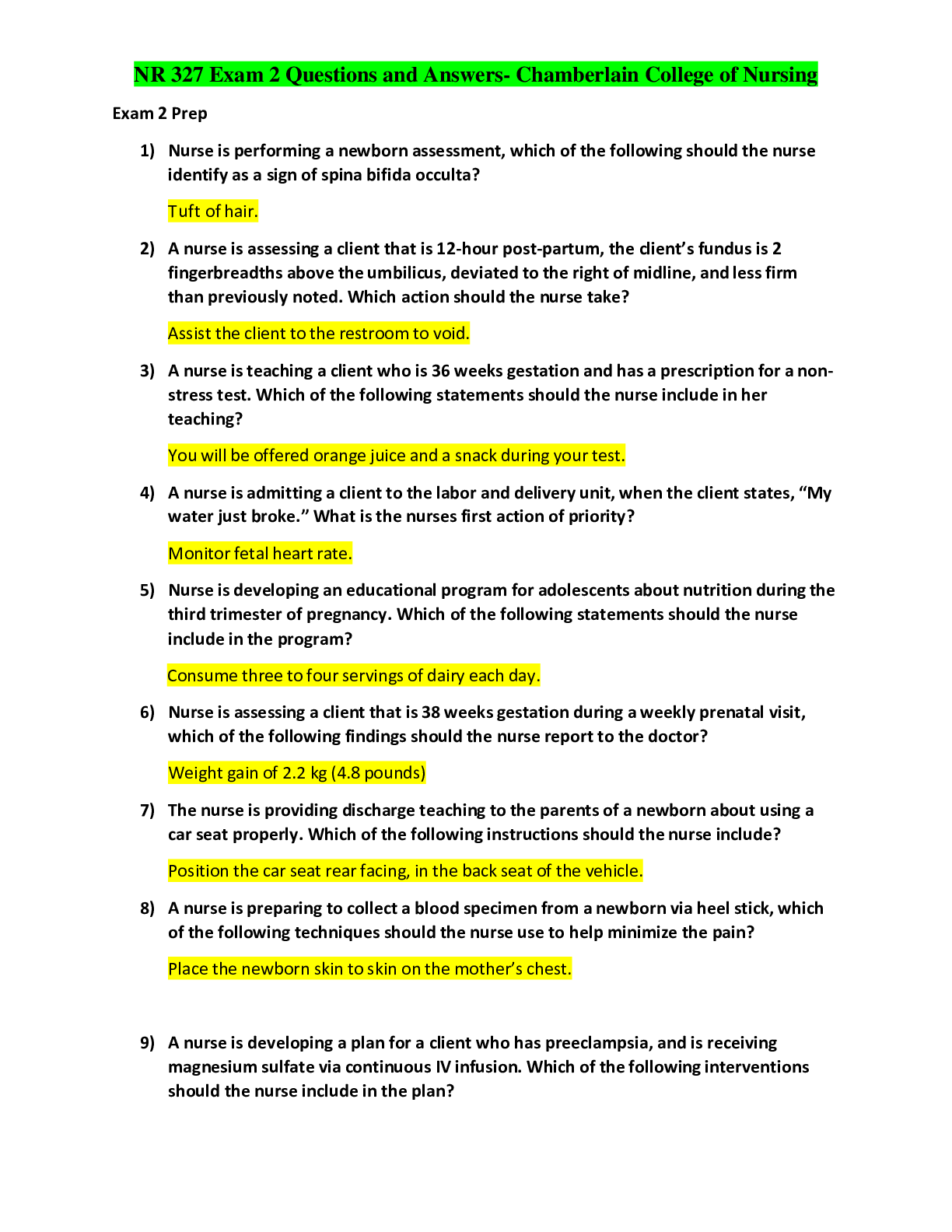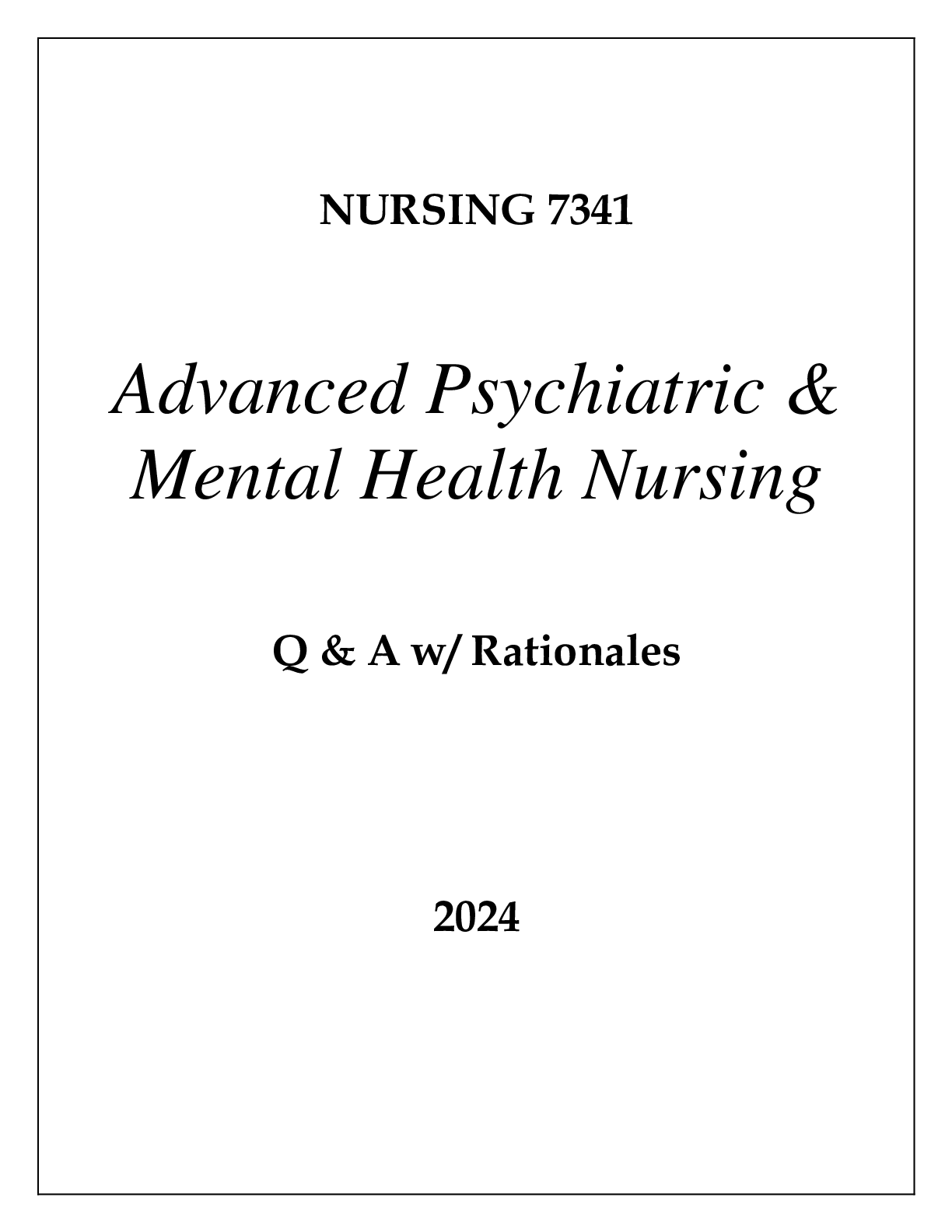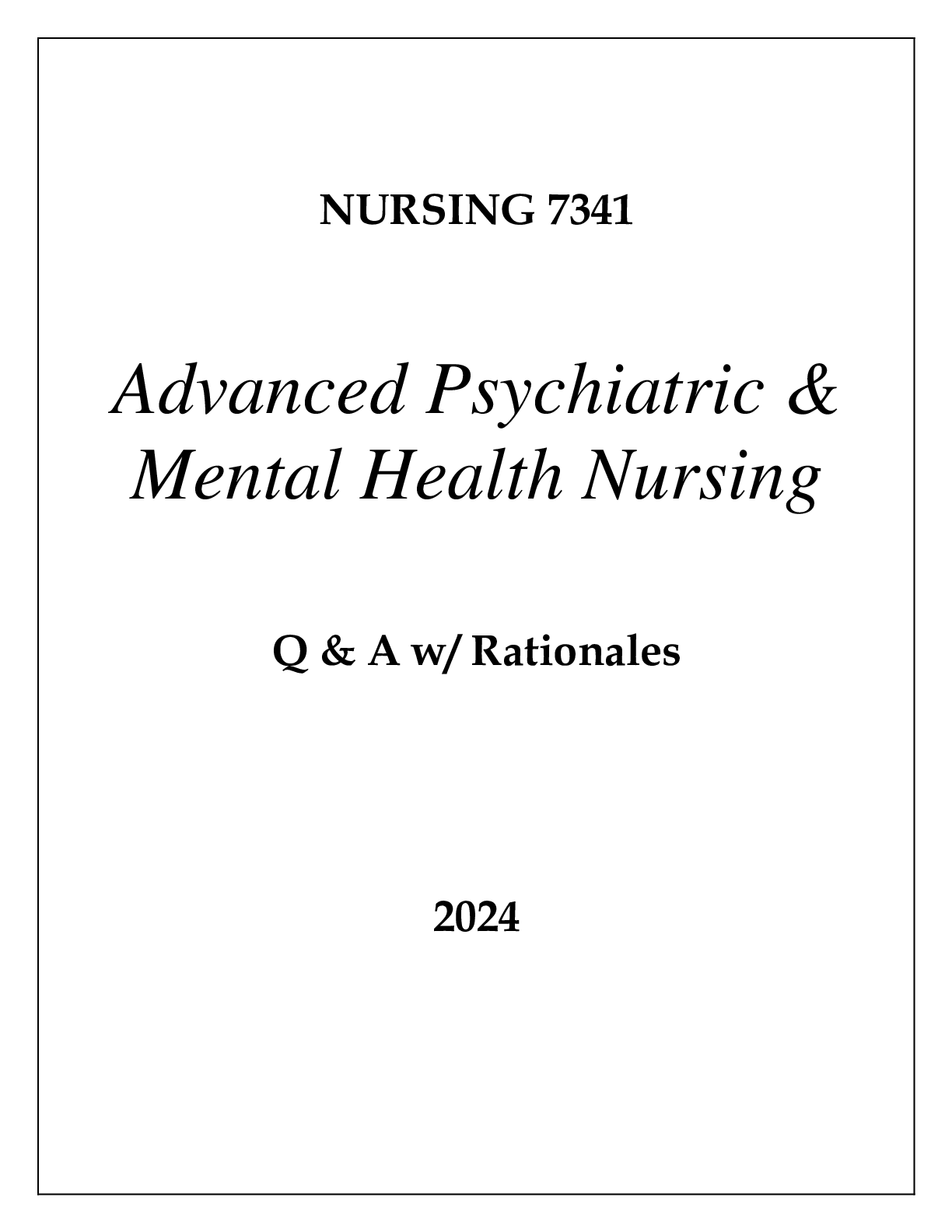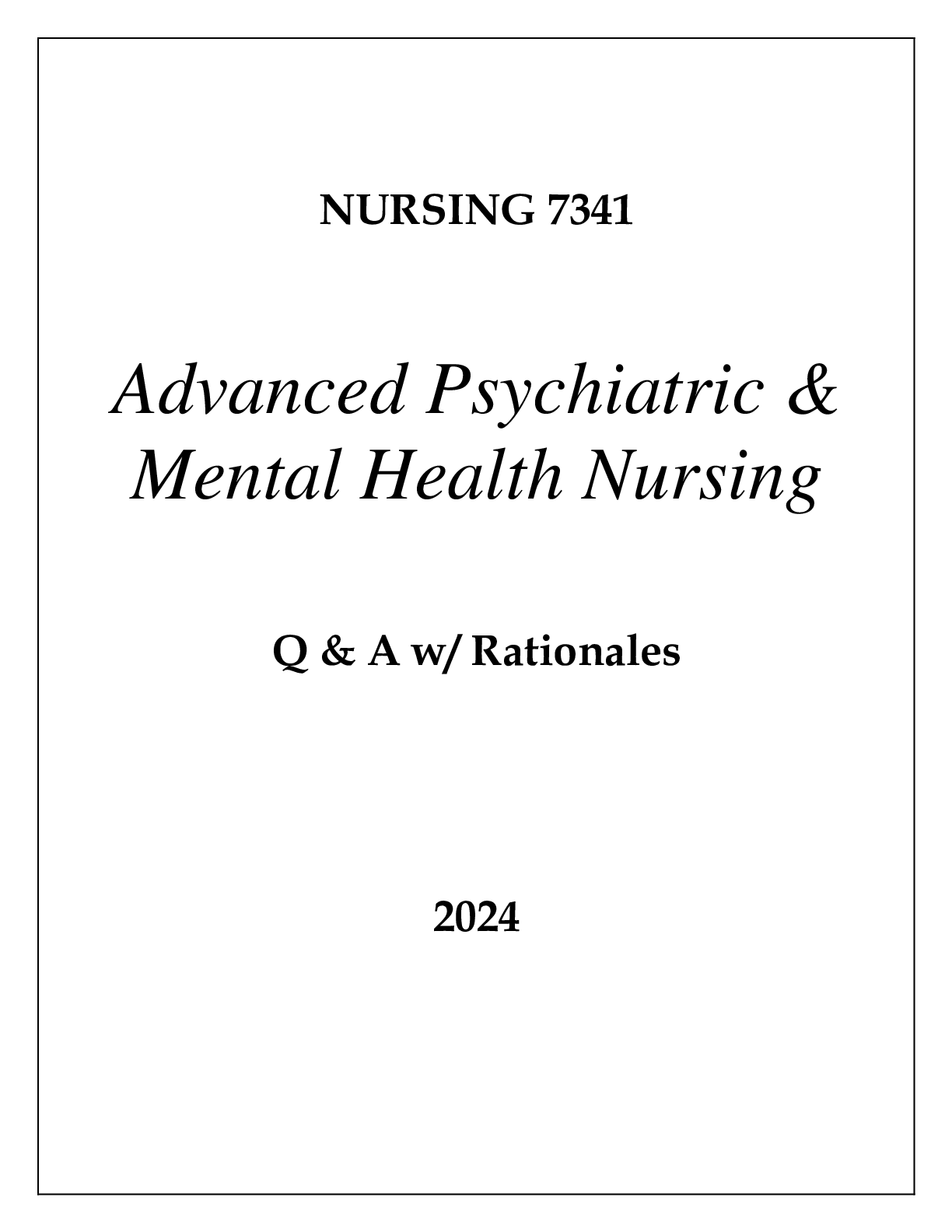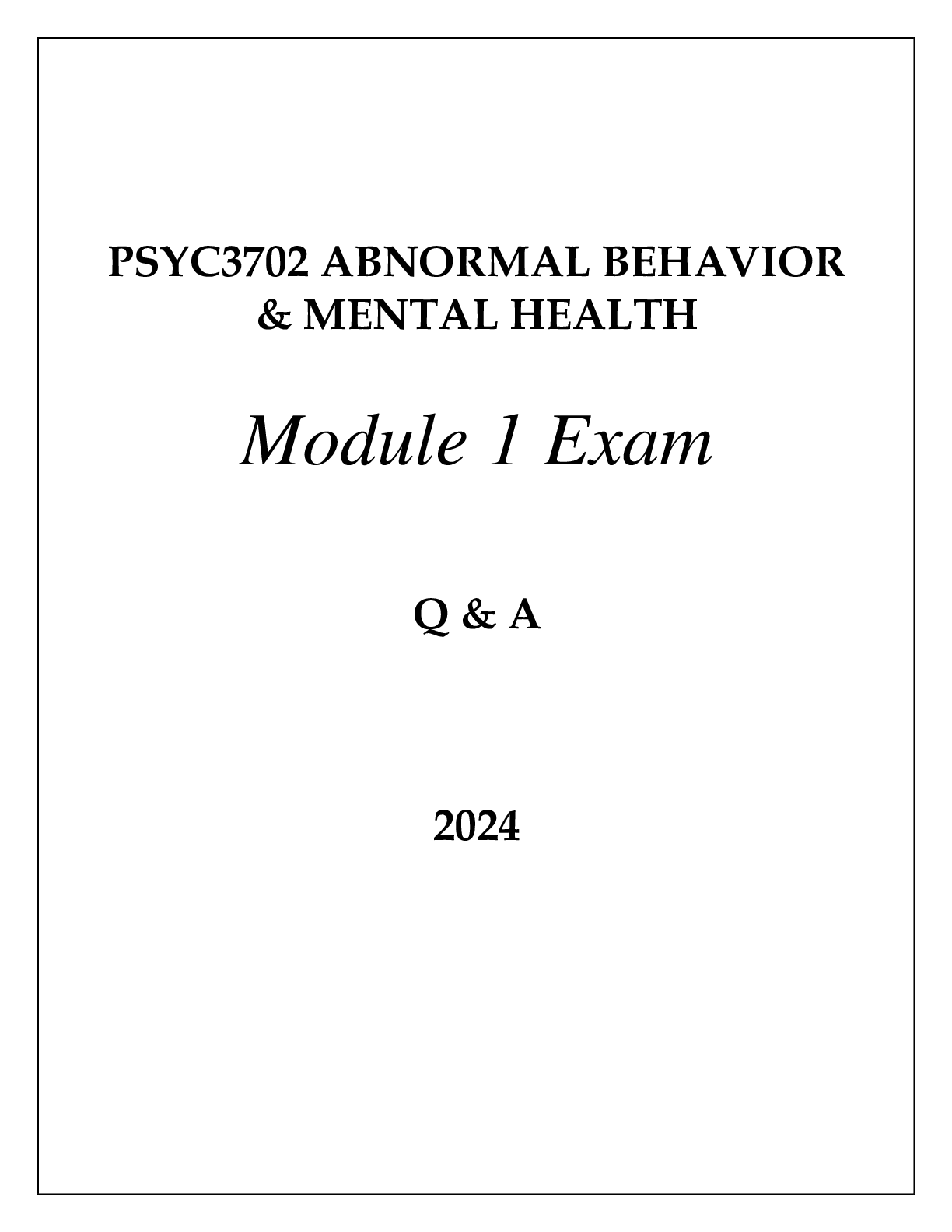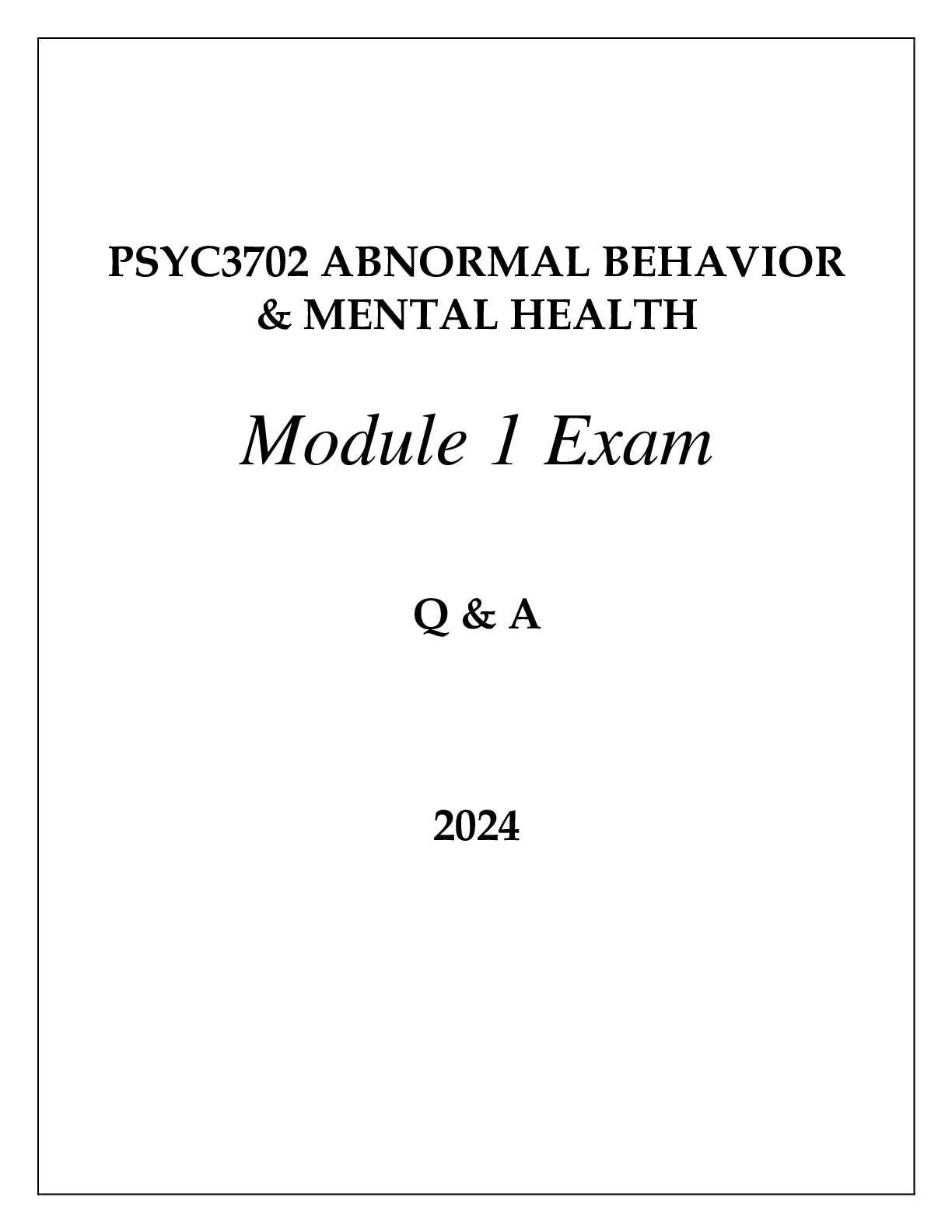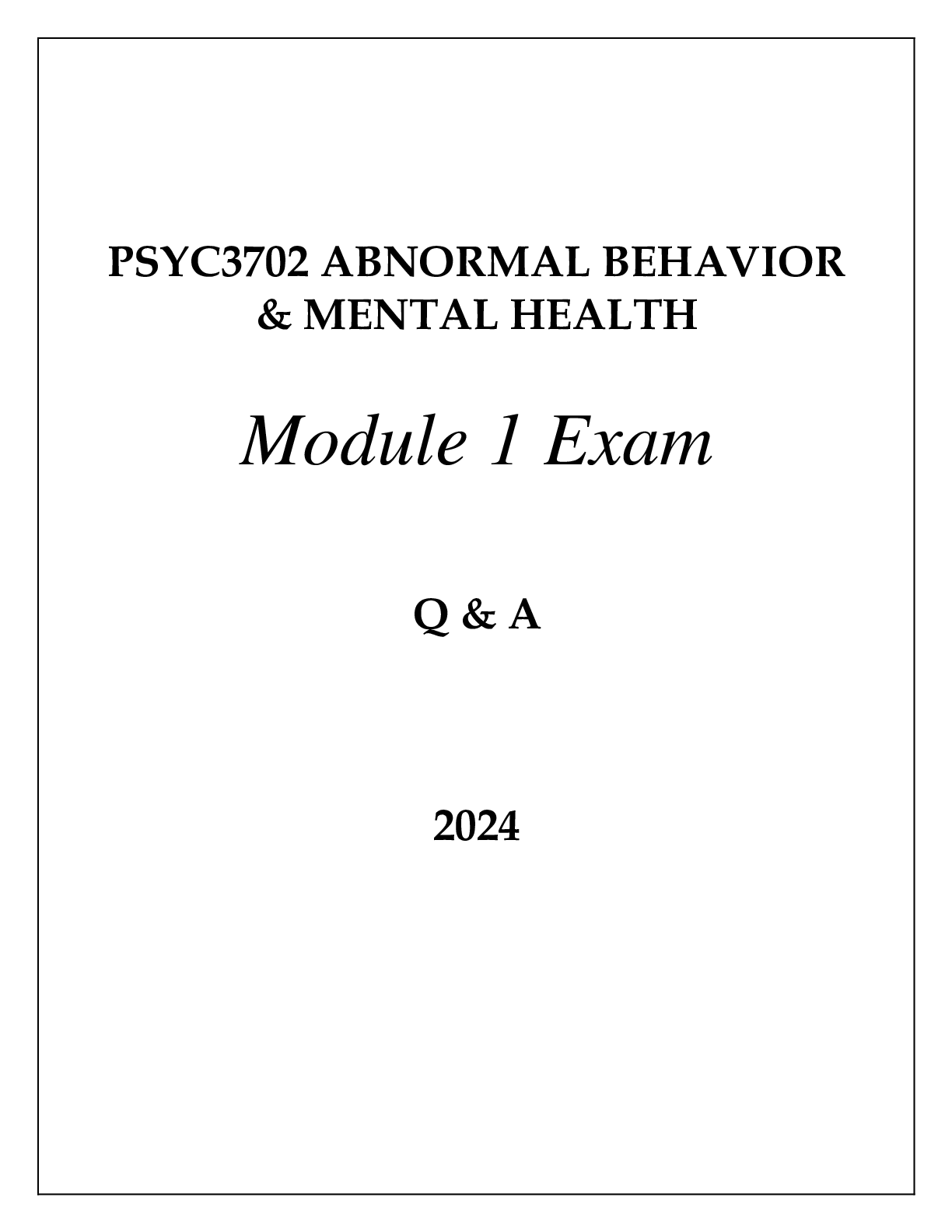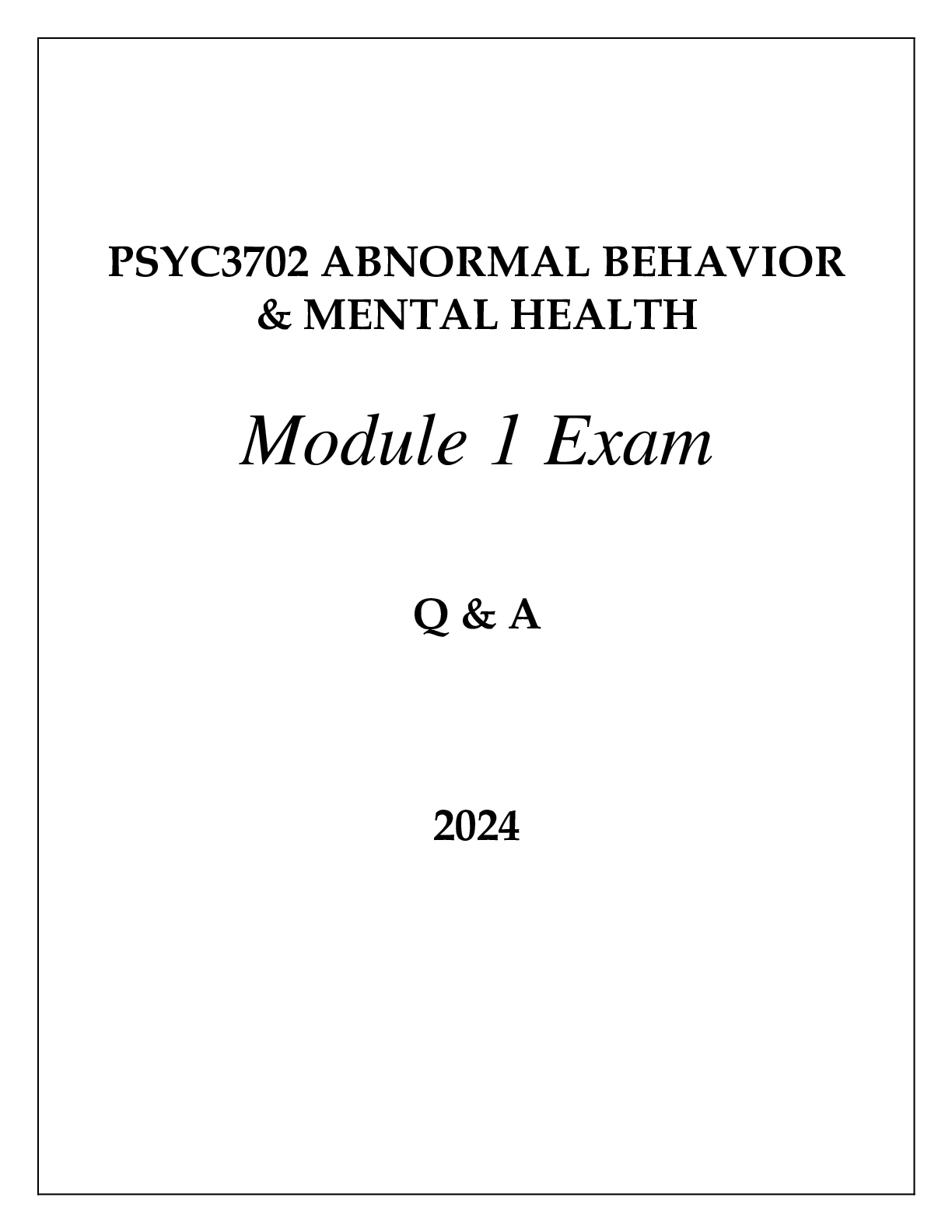*NURSING > EXAM > NURS 623 Exam 3 GI & Mental Health from Fitzgerald's 5th Ed, Exam Questions & Answers (All)
NURS 623 Exam 3 GI & Mental Health from Fitzgerald's 5th Ed, Exam Questions & Answers
Document Content and Description Below
NURS 623 Exam 3 GI & Mental Health from Fitzgerald's 5th Ed, Exam Questions & Answers-A 26-year-old man presents with acute abdominal pain. As part of the evaluation for acute appendicitis, you order ... a white blood cell (WBC) count with differential and anticipate the following results: A. total WBCs, 4500/mm3; neutrophils, 35%; bands, 2%; lymphocytes, 45%. B. total WBCs, 14,000/mm3; neutrophils, 55%; bands, 3%; lymphocytes, 38%. C. total WBCs, 16,500/mm3; neutrophils, 66%; bands, 8%; lymphocytes, 22%. D. total WBCs, 18,100/mm3; neutrophils, 55%; bands, 3%; lymphocytes, 28%. - C A 42-year-old man who has a long-standing history of alcohol abuse presents for primary care. He admits to drinking 12 to 16 beers daily for 10 years. He states, "I really do not feel like the booze is a problem. I get to work every day." Your most appropriate response is: A. "Work is usually the last thing to go in alcohol abuse." B. "Your family has suffered by your drinking." C. "I am concerned about your health and safety." D. "Participating in a support group can help you understand why you drink." - C A 43-year-old woman has a 12-hour history of sudden onset of right upper quadrant abdominal pain with radiation to the shoulder, fever, and chills. She has had similar, milder episodes in the past. Examination reveals marked tenderness to right upper quadrant abdominal palpation. Her most likely diagnosis is: A. hepatoma. B. acute cholecystitis. C. acute hepatitis. D. cholelithiasis. - B A 44-year-old man has been taking an SSRI for the past 4 months and complains of new onset of sexual dysfunction and difficulty achieving orgasm. You advise him that: A. this is a transient side effect often seen in the first weeks of therapy. B. switching to another SSRI would likely be helpful. C. this is a common adverse effect of SSRI therapy that is unlikely to resolve without adjustment in his therapy. D. he should see a urologist for further evaluation. - C A 48-year-old man with obesity and a 1-year history of classic GERD symptoms has been on the consistent use of a therapeutic dose of a PPI for the past 6 months. He states he is "really no better with the medicine and I have cut out most of the food that bothers my stomach. I even cut out all alcohol and soda." Physical examination reveals stable weight, mildly erythematous pharynx, and epigastric tenderness without rebound. Next step options include: A. obtaining an upper GI series. B. referral for GERD surgery. C. further evaluation with upper GI endoscopy. D. obtaining FOBT testing. - C A 56-year-old man with a 60 pack-year cigarette smoking history, recent 5-lb unintended weight loss, and a 3-month history of new-onset symptoms of peptic disease presents for care. He is taking no medications on a regular basis and reports drinking approximately six 12-oz beers per week with no more than three beers per day. Physical examination is unremarkable except for mild pharyngeal erythema and moderate epigastric tenderness without rebound. The most helpful diagnostic test at this point in his evaluation is: A. an upper endoscopy. B. a barium swallow. C. an evaluation of H. pylori status. D. an esophageal pH monitoring. - A A 56-year-old woman is diagnosed with mild diverticulitis. In addition to counseling her about increased fluid intake and adequate rest, you recommend antimicrobial treatment with: A. amoxicillin with clarithromycin. B. linezolid with daptomycin. C. ciprofloxacin with metronidazole. D. nitrofurantoin with doxycycline. - C A 57-year-old male is in need of evaluation for Barrett esophagus. You recommend: A. H. pylori testing. B. CT scan. C. upper GI endoscopy with biopsy. D. barium swallow. - C A 58-year-old man recently began taking an antihypertensive medication and reports that his "heartburn" has become much worse. He is most likely taking: A. atenolol. B. trandolapril. C. amlodipine. D. losartan. - C A 58-year-old man reports intermittent right upper quadrant abdominal pain. He is obese and being actively treated for hyperlipidemia. Imaging in a patient with suspected symptomatic cholelithiasis usually includes obtaining an abdominal: A. MRI. B. CT scan. C. ultrasound of the right upper quadrant. D. flat plate. - C A 62-year-old man presents with a 2-month history of noting a "bit of dark blood mixed in with my stool most days." Physical examination reveals external hemorrhoids, no rectal mass, and a small amount of dark brown stool on the examining digit. In-office fecal occult blood test is positive, and hemogram reveals a microcytic hypochromic anemia. The next best step in his care is to: A. perform in-office anoscopy. B. advise the patient to use sitz baths post-bowel movement. C. refer to gastroenterology practice for colonoscopy. D. order a double contrast barium enema. - C A 62-year-old woman who reports frequent constipation is diagnosed with an anal fissure. First-line therapy includes all of the following except: A. stool-bulking supplements. B. high-fiber diet. C. intra-anal corticosteroids. D. the periodic use of oral mineral oil. - C A 64-year-old male with diagnosed Barrett esophagus has shown no sign of dysplasia in two consecutive evaluations within the past year. You recommend additional surveillance testing should be conducted every: A. 6 months. B. 12 months. C. 2 years. D. 3 years. - D A 64-year-old man undergoing chemotherapy for lung cancer asks about the use of medical marijuana to help relieve symptoms of pain and nausea. The NP considers: A. there is no evidence supporting the use of medical marijuana in cancer. B. smoking would be preferred to edible forms to maximize effect for this patient. C. the state laws should be consulted to check the legal status of medical marijuana prior to prescribing. D. the patient should be evaluated for substance abuse - C A gallstone that is not visualized on standard x-ray is said to be: A. radiopaque. B. radiolucent. C. calcified. D. unclassified. - B A general principle of drug absorption in an elderly adult is best described as: A. amount of absorption is decreased. B. rate of absorption is changed. C. drug absorption is altered but predictable. D. bioavailability is altered. - B A middle-aged woman who has taken a therapeutic dose of lorazepam for the past 6 years wishes to stop taking the medication. You advise her that: A. she can discontinue the drug immediately if she believes it no longer helps with her symptoms. B. rapid withdrawal in this situation can lead to tremors and hallucinations. C. she should taper down the dose of the medication over the next week. D. gastrointestinal upset is typically reported during the first week of benzodiazepine withdrawal. - B [Show More]
Last updated: 4 months ago
Preview 1 out of 29 pages
Instant download
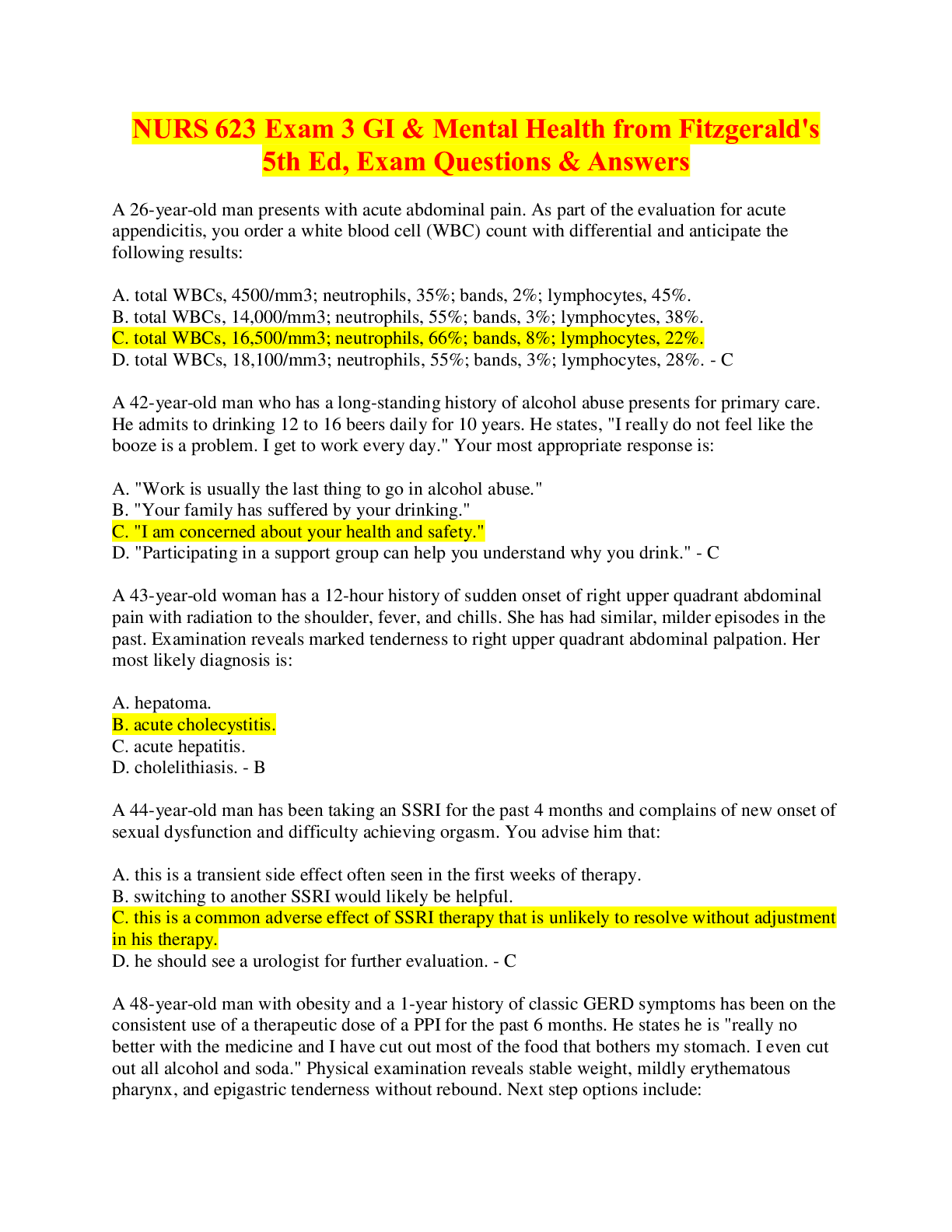
Buy this document to get the full access instantly
Instant Download Access after purchase
Add to cartInstant download
Reviews( 0 )
Document information
Connected school, study & course
About the document
Uploaded On
Feb 02, 2024
Number of pages
29
Written in
Additional information
This document has been written for:
Uploaded
Feb 02, 2024
Downloads
0
Views
48

